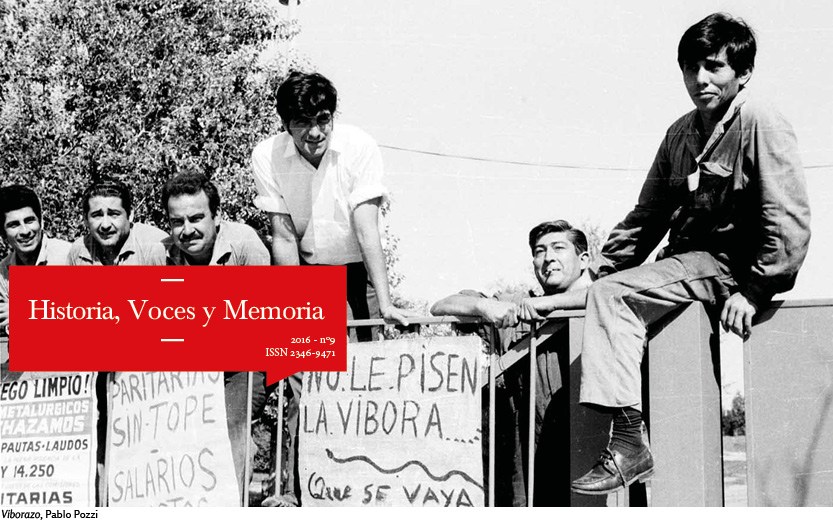La clase obrera azucarera tucumana. Aproximaciones teórico-metodológicas para el estudio de su relación con el PRT-ERP entre 1966 y 1975
Keywords:
working class, tucuman sugar workers, class conscience, labor culture, oral history
Abstract
This article proposes the systematization of different theoretical and methodological criteria that underlie the author’s research on the relationship between the Tucumán sugar workers and the guerrillas of the PRT-ERP between 1966 and 1975. This study is inscribed within the broader consideration of the relationship between the working class and the organized Marxist Left in Argentina during the 1960s and 1970s. Though this subject has been studied before, it also reveals crucial areas that have not been considered. Particularly that which centers on the analysis of working class subjective processes. The article centers on three broad strokes: the first one centered on developing an operative definition of social class. Second, it discusses the use of Gramscian concepts in the terms experience, conscience, and culture as proposed by E.P. Thompson and Raymond Williams. And last, it deals with the potentialilty of Oral History as a window to access political practices, experiences, and forms of conscience and culture in the Tucumán sugar workers.Downloads
Download data is not yet available.
How to Cite
Pisani, A. (1). La clase obrera azucarera tucumana. Aproximaciones teórico-metodológicas para el estudio de su relación con el PRT-ERP entre 1966 y 1975. Historia, Voces Y Memoria, (9), 11-27. https://doi.org/10.34096/hvm.n9.2822
Issue
Section
Artículos







